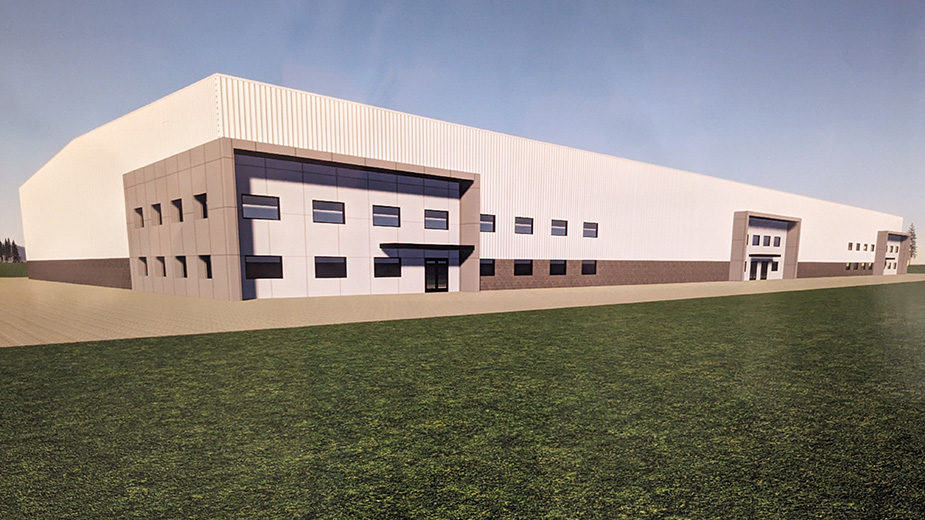Business Welcomes the Trump Economy
YOUNGSTOWN, Ohio — Leo Majernik is a reliable gauge of how the region’s manufacturers are faring nearly two years into the presidency of Donald J. Trump.
His company, Nationwide Industrial Supply Inc. in Boardman, sells small fasteners to mostly manufacturing clients across northeastern Ohio such as aluminum extruders, steel mills, foundries, tool and die shops.
It’s a who’s who of the industrial base. And for Majernik, business couldn’t be better.
“We’re up about 10% from last year and that’s strong for us,” he says. “Demand is strong and we haven’t seen any letup.”
Nationwide Industrial Supply is in a good position to serve as a barometer to the manufacturing economy and stands as an example for how the region’s industrial health trickles down to smaller suppliers. In short, Nationwide’s business grows in step with the region’s larger industrial employers, and in this case, indicates a strong overall manufacturing sector that shows little signs of slowing down.
Still, Majernik says there are some confounding aspects to this economic expansion. In particular are the hefty tariffs the Trump Administration has placed on Chinese imports. Some of these products include fasteners such as flat washers and hex nuts, which Nationwide purchases from distributors that source their components from China.
“We try to buy as North American as we can, but no one can get nuts, flat washers or lock washers,” Majernik says. “Those are mostly made in China or Taiwan.”
The result is higher prices for these products and introducing a level of uncertainty for companies such as Nationwide that rely on providing accurate quotes to customers, Majernik says. “It makes it difficult for us. The biggest problem is uncertainty,” he says.
Earlier this year, the Trump Administration slapped a 10% tariff on aluminum and a 25% penalty on steel shipped to the United States. The action initiated responses from China and other countries. China placed tariffs on $60 billion worth of U.S. goods imported to that country, while the Trump Administration answered with additional penalties attached to $200 billion in Chinese imports. Trump has since threatened penalties on another $267 billion of Chinese imports should China retaliate with additional trade sanctions on U.S. goods.
While the steel and aluminum tariffs have had the desired effect of boosting output by domestic producers – which helps companies such as Nationwide – they’ve also led to increased prices on imported products on which Majernik’s company relies, which hurts the company.
“We notice prices going up every day,” he says. “However, you have to give Trump some credit for what’s happening with the overall economy.”
There are some unusual characteristics of this latest economic expansion when compared to others, observes A.J. Sumell, professor of economics at Youngstown State University. “During economic expansions, deficits usually go down,” he says. “We’re in a historically long expansion period and Trump and the Republicans decided to cut taxes in order to fuel more growth,” which also adds to the deficit and debt.
Sumell says the economy had already shifted into gear after 2009 at the close of the Great Recession and had structurally been growing for the right reasons. “The positive changes that we’d like to see happen were happening. So, there was really no need for a tax cut. From a political perspective, though, it was popular,” he says.
It’s certain that this expansion will end, but it is equally uncertain as to when, Sumell says. “It’s not going to last forever and no one knows how long,” he says. Saddled with a deficit that already stands at $1 trillion and a national debt at more than $20 trillion, it’s going to be more difficult to address economic issues through policy when the next recession hits.
Still, Sumell acknowledges that some of Trump’s policies have fueled economic growth and reduced unemployment, although it is difficult to ascertain just how much is due to tax policy as opposed to other factors.
Moreover, trade policy under the Trump Administration – dominated by tariffs first announced in the spring and then implemented this summer – are beneficial to some segments of the economy, but not to all, Sumell says.
Initially, Trump had stated during the 2016 presidential campaign that the objective of enforcing tariffs is to reduce the country’s trade deficit, Sumell says. “It’s higher now than it was before he took office,” he says. “And it isn’t expected to get better.”
Ironically, the tax cuts and stronger economy have provided companies and consumers with more purchasing power, allowing them to absorb the higher costs of buying imported goods, Sumell says. “We’re not producing as much as we are spending. We’re still buying imports,” he says.
Renegotiating trade agreements such as the North American Free Trade Agreement – now the U.S.-Mexico-Canada Agreement, or USMCA – have certainly helped the president politically, but the deals are unlikely to have a major impact on overall bilateral trade deficits with the United States, according to Sumell.
Nevertheless, there stands real opportunity to strike better agreements between the U.S., Japan and European countries that implement lower or even eliminate trade barriers, which could provide leverage to pursue tougher negotiations with China and obtain concessions from that country. “The tough talk with our allies is having the desired effect,” Sumell says. “It’s possible that the tariffs will achieve that goal.”
Meanwhile, Trump’s policies are welcomed with open arms among local businesses.
“There are a lot of things breaking,” says Dave Dickey, CEO of Dickey Electric Co. in North Lima. “Business is really good. We’re working on a bunch of stuff, such as steel plants.”
Dickey was among a contingent of local contractors who attended the National Electrical Contractors Association convention Oct. 2 in Philadelphia. Trump, the first sitting president to address the convention in its 117 years, touted the strengths of the economy and efforts to improve workforce training programs.
“The president has an initiative to bring 60,000 apprentices on board over the next five years,” Dickey says. “That’s one of our initiatives.”
Dickey says he felt honored to have a sitting president address the group, relating that Trump “hit all the buttons that help us grow our business. Not everyone likes Trump in our organization, but they do respect the office and we do want to hear what he has to say.”
Pictured: Leo Majernik of Nationwide Industrial Supply says the manufacturing sector is strong.
Copyright 2024 The Business Journal, Youngstown, Ohio.



